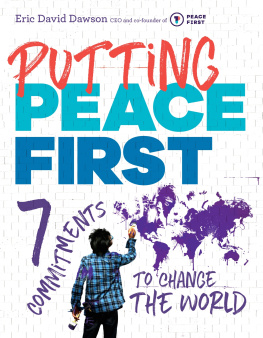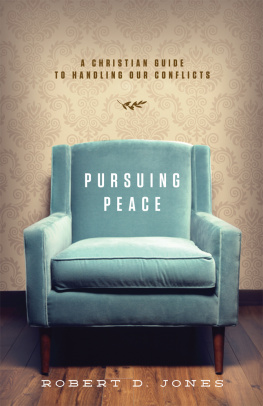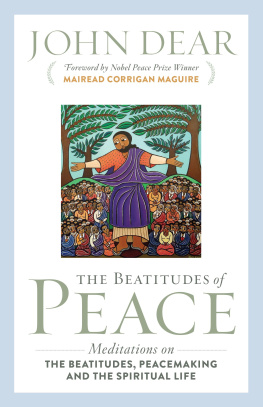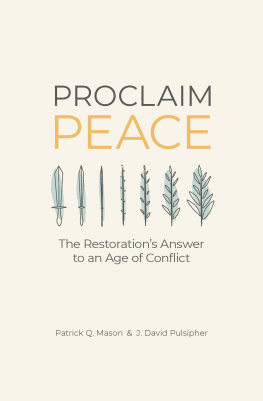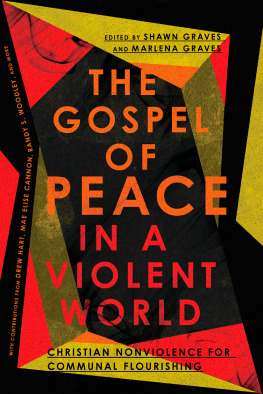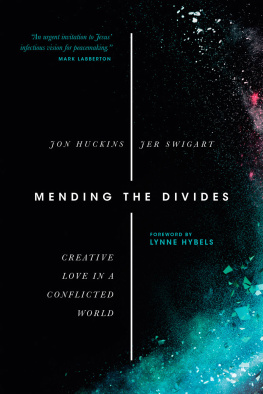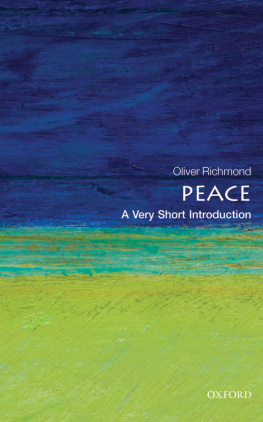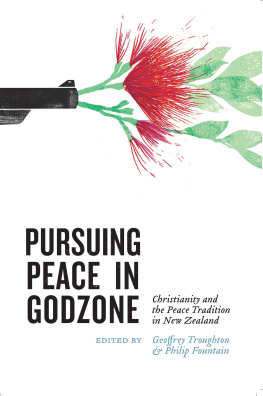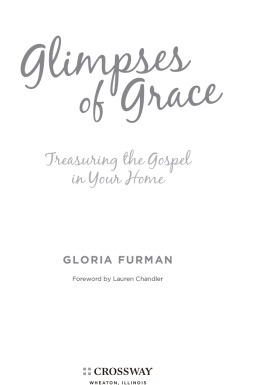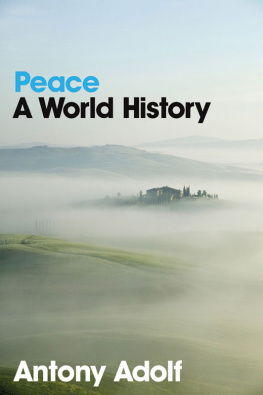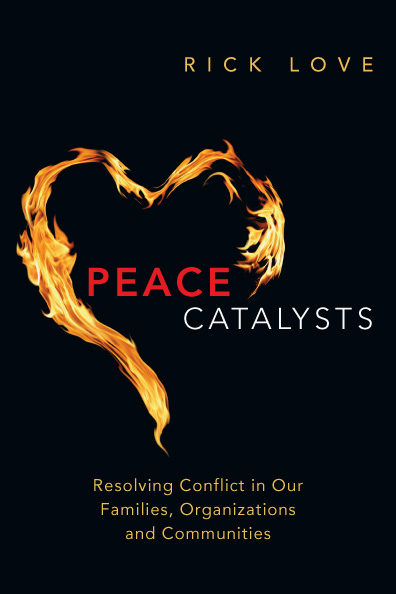InterVarsity Press
P.O. Box 1400,
Downers Grove, IL 60515-1426
World Wide Web: www.ivpress.com
Email:
2014 by Rick Love
All rights reserved. No part of this book may be reproduced in any form without written permission from InterVarsity Press.
InterVarsity Press is the book-publishing division of InterVarsity Christian Fellowship/USA, a movement of students and faculty active on campus at hundreds of universities, colleges and schools of nursing in the United States of America, and a member movement of the International Fellowship of Evangelical Students. For information about local and regional activities, write Public Relations Dept., InterVarsity Christian Fellowship/USA, 6400 Schroeder Rd., P.O. Box 7895, Madison, WI 53707-7895, or visit the IVCF website at www.intervarsity.org .
All Scripture quotations, unless otherwise indicated, are taken from the Holy Bible, Todays New International Version Copyright 2001 by International Bible Society. All rights reserved.
Scripture quotations marked NASB are taken from the New American Standard Bible. Copyright 1960, 1963, 1968, 1971, 1972, 1973, 1975, 1977, 1995 by The Lockman Foundation. Used by permission.
Scripture quotations marked NLT are taken from the Holy Bible, New Living Translation. Copyright 1996, 2004, 2007 by Tyndale House Foundation. Used by permission of Tyndale House Publishers, Inc., Carol Stream, Illinois 60188. All rights reserved.
The Just-Peacemaking Paradigm (appendix E) is from the Just Peacemaking Initiative at Fuller Theological Seminary. Used with permission.
While all stories in this book are true, some names and identifying information in this book have been changed to protect the privacy of the individuals involved.
Cover design: Cindy Kiple
Images: frentusha/iStockphoto
ISBN 978-0-8308-9632-5 (digital)
ISBN 978-0-8308-3668-0 (print)
Contents
3 What Peace Catalysts Do:
Part One
4 What Peace Catalysts Do:
Part Two
8 How Peace Catalysts Spread the Peace:
Part One
9 How Peace Catalysts Spread the Peace:
Part Two
1
Got Conflict?
Love is the only force capable of transforming an enemy into a friend. We get rid of an enemy by getting rid of enmity.
Martin Luther King Jr.
Following the Prince of Peace into a World of Conflict
The word peace conjures up different things for different people. I am a child of the sixties, so my generation links peace with hippies, anti-Vietnam war protests and free love. Others think of beauty queens declaring their hope for world peace. (I cant help but picture Sandra Bullock in Miss Congeniality. ) Many conservative evangelicals assume peace is for liberals, whether theological or political. Other evangelicals, who appreciate the Bibles emphasis on peace, tend to have a narrow view of Gods peace purposes, focusing primarily on interpersonal peacemaking among believers. Peace for them is often unrelated to the gospel, the kingdom of God or the pressing social issues of the day. No wonder so many evangelicals feel that the concept of peace is wimpy.
But is peace only relevant for the faithful few? Is peace just for hippies, beauty queens and liberals?
Jesus didnt think so. Peace is a major piece of the Bible. Its big . One of Jesus most prized titles is Prince of Peace (Isaiah 9:6). This One who invites all people to follow him is the source of peace in a world of conflict. And Jesus knows his stuff. We do well to obey what he says about conflict resolution.
This book started as a primer and was going to be short. But I kept writing. In this book, I outline the how to of Jesus teaching on peacemaking. But my greater desire is to inspire you to want to be a peacemaker. I have written this to help you follow the Prince of Peace. He will help you resolve your conflicts and become a peace catalyst.
The Pain of Conflict
Conflict is a painful fact of life. Many of us have not experienced the trauma of war or the violence of racism, but we have all been wounded by words. We have felt both the discomfort and the distress of discord. And we know that, sadly, unresolved conflict poisons relationships and multiplies alienation (Hebrews 12:14-15).
The first recorded conflict in Scripture took place in a family. No surprises here. The family should be a place of comfort, safety and support, but it often becomes a battleground. Thats what happened between Cain and Abel (Genesis 4:1-16). Cain was jealous of his brother because God accepted Abels offerings and rejected his. So Cain became angry and brutally murdered Abel.
Few of us have experienced such violence in our families, but we all know family pain and brokenness at some level. Sometimes it comes from parents; other times it comes from our siblings or even our extended family. Verbal jabs and mean-spirited putdowns scar our psyche. The very people who should love us dont have time for us. The people who should be eager to hear about our successes or bear our burdens dont always seem to care. We feel forced to live up to parental expectations or dreams that dont fit our gifting or natural bent.
My friend Robert stood outside my parents house talking with his wife, Betty, who had been driving by and stopped to talk. I was happy to see this, because they had been having struggles in their marriage. But the conversation soon got heated and escalated into a shouting match. Betty peeled out in her cartires squealing. Robert ran down the driveway in rage. He screamed and hit the garage door, nearly breaking his hand. This big, strong man wept in my arms as I tried to comfort and calm him. Months later they divorced.
We also experience conflict in our organizations. Without a doubt, the most painful and prolonged conflict I ever experienced was when I became the CEO of the US branch of the faith-based organization Frontiers in 1993. I got caught between Frontiers international board of directors and its US board. The international board had decided they wanted a new, visionary leader to head up their US office. They unanimously and unilaterally wanted to install me as the new CEO.
The US board perceived my appointment as a power play. They felt the international board had not treated them as equal partners. So the US board firmly rejected me. And I felt the brunt of these opposing entities. The relationship between the two boards remained in an ugly stalemate for months. Finally, the entire US board resigned from Frontiers.
What an auspicious start! I was the CEO of an organization whose whole board had just quit. I not only had to endure the stinging criticisms and rejection of the US board, but I also had to face public shame, as Christianity Today covered the story. The first mention of my name in print as a Christian leader was surrounded by controversy. Not what I had hoped for.
Not only this, but I inherited a group of thirty dedicated and gifted staff members who didnt want me to be their leader. I had been forced on them. They had had no part in the process, no say in my appointment. They too were in pain. Although I was distressed, I felt worse for them. One woman leader said the transition felt like emotional rape. Others didnt use such strong language to describe their feelings, but they were hurt. In one meeting I actually got an intense side ache as I listened to them talk about their distress over the transition.


